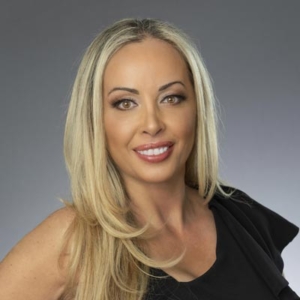Michigan Plastic Surgeon in the Top 5% of Physicians
Bloomfield Hills, MI—Michigan plastic surgeon M. Azhar Ali has been recognized as a Patient’s Choice physician by Vitals.com. Vitals.com is one of the top destinations on the web for doctor information and patient ratings. Its Patient’s Choice designation is awarded to doctors who consistently receive high ratings and positive reviews from their patients.
Every month more than 200,000 patients provide feedback about their doctor experiences, and over the course of 2011, hundreds of thousands of patient reviews were written at Vitals.com. While physicians often receive positive feedback, only a select few consistently receive ongoing positive reviews. In fact of the nation’s 720,000 active physicians, only five percent were accorded this honor by their patients.
“This is an incredible honor,” said Dr. Ali. “It reinforces what I have always believed. As plastic surgeons we are entrusted with our patients’ self-image. There must be collaboration, and we must build relationships so that patients know we only want what is best for them.”
Dr. Ali’s practice philosophy revolves around insuring that patients are extremely comfortable with their procedure and decisions prior to moving forward. He will take as much time as a patient needs to insure that all questions have been answered and concerns put to rest. Dr. Ali uses a four-part system of discovery, consultation, procedure and follow up to insure patient safely and satisfaction. In fact, Dr. Ali is truly a surgeon’s surgeon; in 2009 he was named a Top Doctor by Hour Detroit, and in 2010 Dr. Ali was named to the Detroit Super Doctors list.
About Dr. Ali
Dr. M. Azhar Ali is a board-certified Michigan plastic surgeon and director of Amae Plastic Surgery Center. Dr. Ali is extensively trained in plastic and reconstructive surgery and has performed numerous breast augmentations in Michigan. Additionally, Dr. Ali performs facelifts, tummy tucks, liposuction and most other cosmetic surgical procedures. Amae Plastic Surgery also offers skin care procedures and product lines.
Since graduating from medical school in 1986 Dr. Ali has received extensive specialized training, including a Fellowship in Aesthetic and Reconstructive Breast Surgery at Women’s College Hospital in Toronto, a Fellowship in Microsurgery and Trauma at St. Michael’s Hospital in Toronto and a Fellowship at Children’s Hospital in Toronto for Pediatric Surgery.
Dr. Ali is member of the American Society of Plastic Surgeons, the American College of Surgeons, the American Medical Society the Michigan State Medical Society and the Oakland County Medical Society. He has written and presented and published a number of research articles. Dr. Ali regularly attends the annual convention of The American Society of Plastic Surgeons and continues to stay at the forefront of cosmetic and reconstructive surgery.
About Vitals
Vitals.com is a top web destination for consumers seeking information about doctors. Vitals is committed to providing the most thorough information available on doctors so that consumers will have the information they need to make the best possible healthcare choices. Vitals strives to list all U.S. doctors, and it obtains information and data from a wide variety of sources both public and private, including medical boards from all 50 states, federal websites, hospitals, doctors, surveys, business alliances, third party affiliates and patient feedback.
Media Contact:
Jeff Stanislow
jeff@motorcityinteractive.com
 Marina – Dr. Ali's Assistant
Marina – Dr. Ali's Assistant

